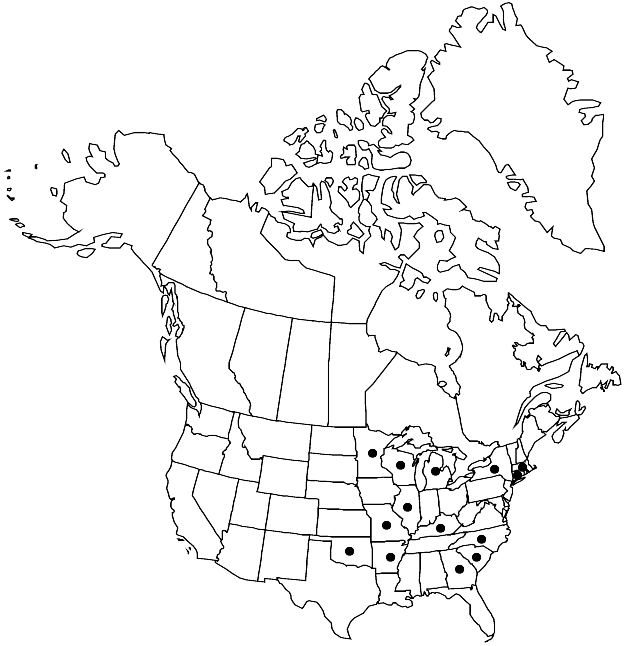Difference between revisions of "Boechera missouriensis"
Novon 13: 387. 2003.
FNA>Volume Importer |
imported>Volume Importer |
||
| (One intermediate revision by the same user not shown) | |||
| Line 72: | Line 72: | ||
|publication year=2003 | |publication year=2003 | ||
|special status= | |special status= | ||
| − | |source xml=https:// | + | |source xml=https://bitbucket.org/aafc-mbb/fna-data-curation/src/2e0870ddd59836b60bcf96646a41e87ea5a5943a/coarse_grained_fna_xml/V7/V7_554.xml |
|tribe=Brassicaceae tribe Boechereae | |tribe=Brassicaceae tribe Boechereae | ||
|genus=Boechera | |genus=Boechera | ||
Latest revision as of 22:34, 5 November 2020
Biennials; short-lived; sexual; caudex not evident. Stems usually 1 per plant, arising from center of rosette near ground surface, 2–7.5 dm, sparsely pubescent proximally, trichomes simple, to 0.5 mm, or glabrous throughout. Basal leaves: blade oblanceolate, 5–18 mm wide, margins lyrate-pinnatifid, often ciliate-mucronate on lobes, trichomes minute, surfaces glabrous or sparsely pubescent, trichomes simple, 0.1–0.5 mm. Cauline leaves: 10–45, often concealing stem proximally; blade auricles 1–5 mm, surfaces glabrous. Racemes 18–47-flowered, sometimes branched. Fruiting pedicels suberect to divaricate-ascending, straight or slightly curved, 5–13 mm, glabrous. Flowers ascending at anthesis; sepals glabrous; petals white, 5–10 × 1–1.5 mm, glabrous; pollen ellipsoid. Fruits ascending to divaricate-ascending, not appressed to rachis, not secund, curved, edges parallel, 6–11 cm × 1.5–2 mm; valves glabrous; ovules 60–86 per ovary; style 0.1–1 mm. Seeds uniseriate, 1.2–2 × 1–1.2 mm; wing continuous, 0.1–0.4 mm wide.
Phenology: Flowering Mar–Jun.
Habitat: Rocky bluffs, wooded slopes, valley bottoms
Elevation: 50-300 m
Distribution

Ark., Conn., Ga., Ill., Ky., Mass., Mich., Minn., Mo., N.Y., N.C., Okla., S.C., Wis.
Discussion
Boechera missouriensis occasionally has been treated as a variety of B. laevigata. With its significantly longer petals (5–10 versus 3–5 mm) and distinctive, lyrate-pinnatifid basal leaves that persist well beyond anthesis, it warrants recognition as a species.
Selected References
None.